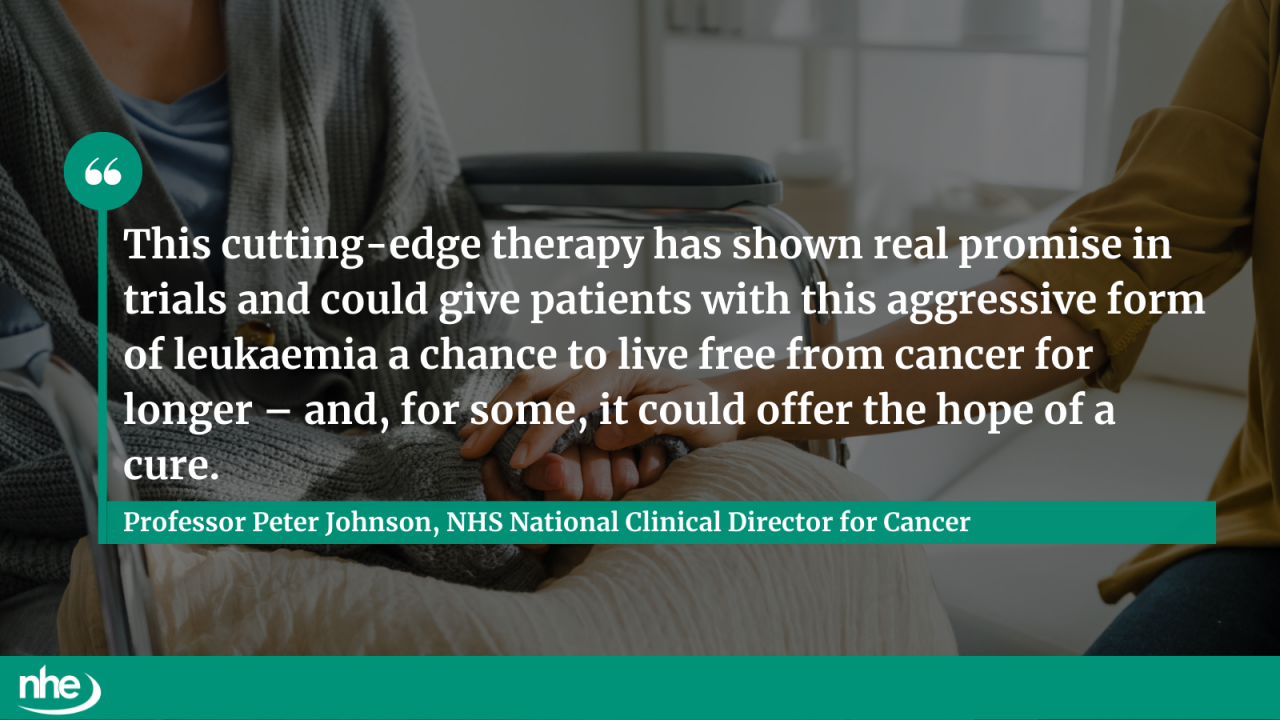Patients with an aggressive form of leukaemia will soon have access to a groundbreaking CAR T-cell therapy on the NHS, following approval by the National Institute for Health and Care Excellence.
The personalised treatment, known as obe-cel (obecabtagene autoleucel), reprogrammes a patient’s own immune cells to identify and attack cancer cells, before returning them to the body as ‘living medicine.’
NHS England announced today that the therapy will be available within weeks at specialist CAR-T centres across the country, fast-tracked through interim funding from the Cancer Drugs Fund.
Eligible patients aged 26 and over with B-cell acute lymphoblastic leukaemia (ALL) that has returned or not responded to previous treatment will receive two intravenous doses, ten days apart.
Clinical trial results show:
- 77% of patients achieved remission after obe-cel treatment
- 50% had no detectable cancer after 3.5 years
- Patients gained an average of 15.6 additional months of life
- Lower toxicity and fewer severe side effects compared to other CAR-T therapies
NHS National Clinical Director for Cancer, Professor Peter Johnson, commented:
“This cutting-edge therapy has shown real promise in trials and could give patients with this aggressive form of leukaemia a chance to live free from cancer for longer – and, for some, it could offer the hope of a cure.
“This ‘living medicine’ boosts a patient’s own immune system and then guides T-cells towards the cancer to kill it – it is fantastic to have another pioneering option available on the NHS, adding to our range of CAR-T therapies which are helping people with blood cancers live longer, healthier lives.”

Acute lymphoblastic leukaemia is an aggressive cancer of the blood and bone marrow, affecting around 800 people annually in the UK, half of whom are adults. Current chemotherapy treatments offer an average survival of just 10 months after relapse.
The therapy, researched and manufactured in the UK by Autolus Therapeutics, a spin-out from University College London, will be produced in Stevenage, a hub for cell and gene therapy innovation.
This marks the latest milestone in the NHS’s leadership in personalised medicine, having been the first health system in Europe to offer CAR-T therapy in 2018.
Image credit: iStock



















